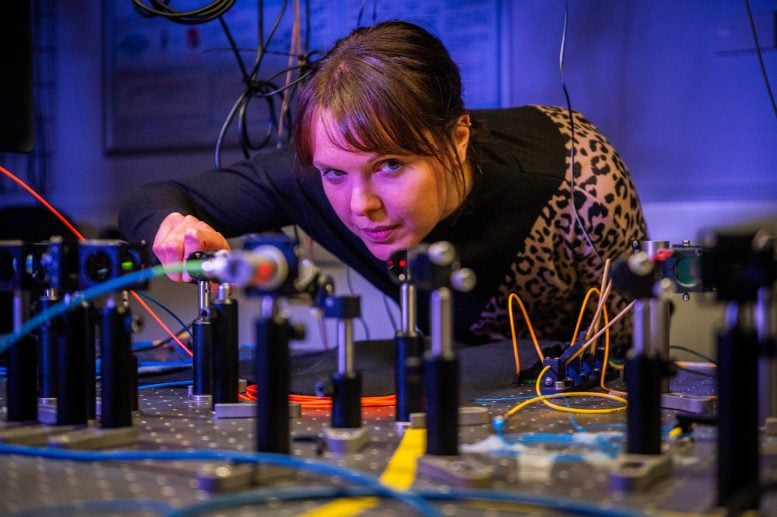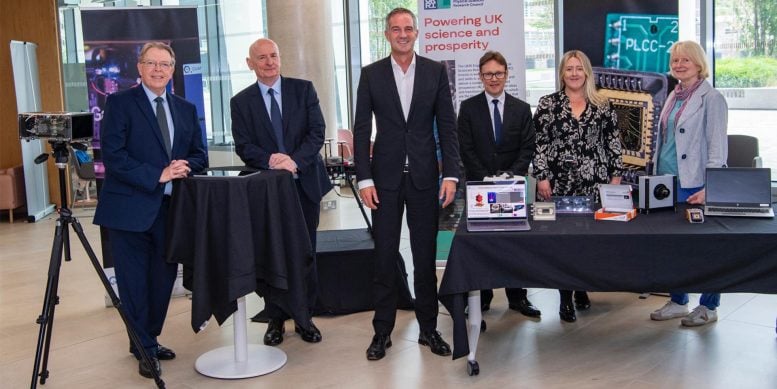
Dr. Fiona Fleming optically aligning a quantum sensing system. Credit: Heriot-Watt University
Heriot-Watt University heads a new quantum research hub to develop a secure quantum internet and advance technologies across various sectors, fueled by a significant UK government investment.
Heriot-Watt University has been chosen to lead a groundbreaking new quantum research hub that aims to develop technologies to progress an ultra-secure ‘quantum internet’ of the future. The Integrated Quantum Networks (IQN) Hub is one of five new quantum technology hubs announced by the UK government as part of a £160 million investment to ensure the UK remains at the forefront of these revolutionary technologies.
Quantum technology can harness the unique properties of atoms and subatomic particles to achieve functionalities that are not possible with existing, conventional technologies. While complex in nature, the applications of quantum technology are set to revolutionize many aspects of our daily lives.
Professor Gerald Buller, who will lead the IQN Hub at Heriot-Watt, explains: “Think of quantum like a supercharged version of the technology we use today. It allows us to solve problems and secure data in ways that are unimaginable with conventional technology. This could lead to breakthroughs in everything from pharmaceutical research to exciting new materials development.”
Goals of the IQN Hub
The IQN Hub will focus on creating large-scale quantum networks capable of distributing quantum entanglement potentially leading to the development of a secure communications network and therefore an internet free from hacking issues. Another clear motivation for quantum networks is to connect next-generation quantum processors to produce enormous computational power. Furthermore, these quantum networks can eventually be used to connect quantum sensors for ultra-low-noise measurements.
“The Integrated Quantum Networks Hub will deliver the research required towards the establishment of a quantum internet, leading to metropolitan scale demonstrations within the lifetime of the Hub,” said Professor Buller. “The Hub harnesses the excellent research done over the last ten years in the National Quantum Technologies Programme to focus on delivering quantum networks at a range of distance scales, from local networks up to global satellite-based connections.”

Pictured is Quentin Pankhurst (bio hub), Gerald Buller (IQN), Peter Kyle MP, Douglas Paul (PNT), Kirsty Annand (QuantIC/Quantum sensing and timing), Viv Kendon (Q Computing). Credit: Heriot-Watt University
In an era where cybercrime costs the UK an estimated £27 billion annually, the quantum internet promises unprecedented levels of security. Unlike current encryption methods, quantum networks use the principles of quantum mechanics to create unbreakable encryption keys, making them impervious to hacking attempts.
Beyond enhanced security, the quantum internet provides secure connections between SciTechDaily